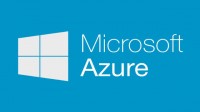Microsoft Rolls Out Ampere-Powered ARM-Based Azure VMs
August 31, 2022
Microsoft’s new Azure Virtual Machines, featuring Ampere Altra ARM–based processors, will be generally available on September 1, debuting in 10 Azure regions and multiple availability zones worldwide. Microsoft says the VMs can also be included in Kubernetes clusters managed using Azure Kubernetes Service (AKS). Engineered to efficiently run scale-out, cloud-native workloads, Microsoft says that since the technology began previewing earlier this year hundreds of customers have tested the ARM-powered VMs “for web and application servers, open-source databases, microservices, Java and .NET applications, gaming, media servers and more.”
“Earlier this year, we launched the preview of the new general-purpose Dpsv5 and Dplsv5 and memory optimized Epsv5 Azure Virtual Machine series, built on the Ampere Altra processor. Starting today, all Azure customers can deploy these new virtual machines using the Azure portal, SDKs, API, PowerShell, and the command-line interface (CLI),” Microsoft Azure Compute Platform VP Paul Nash wrote on the Azure blog.

The Azure virtual machines “have up to 64 virtual CPU cores, 8 GB of memory per core and 40 Gbps of networking bandwidth as well as SSD local and attachable storage,” writes TechCrunch, adding that “preview releases of Windows 11 Pro and Enterprise and Linux OS distributions including Canonical Ubuntu, Red Hat Enterprise Linux, SUSE Enterprise Linux, CentOS and Debian are available on the VMs day one, with support for Alma Linux and Rocky Linux to arrive in the future.”
Major developer platforms and languages including Java, Python, Rust, PHP and .NET support the ARM ecosystem, Microsoft says, noting that Java apps in particular require few additional code changes to run on the Azure VMs, as the result of Microsoft’s contributions to the OpenJDK project.
Ampere announced Microsoft as a client only last year. TechCrunch calls the launch of the Azure VMs “a notable win” for the Santa Clara-based microchip manufacturer, “which came out of stealth in 2018 with the ambitious goal of competing with Intel for a slice of the ~$10 billion data center chip market” and now includes Oracle, Google Cloud and Tencent Cloud among its customers.
ZDNet reports that “Microsoft still has not said that it plans to support Windows Server on ARM other than for its internal use. In 2020, Microsoft officially announced that it has been working with Intel, AMD, and ARM vendors Qualcomm and Cavium to support Project Olympus, Microsoft’s next-generation cloud-hardware design provided to the Open Compute Project.”

No Comments Yet
You can be the first to comment!
Sorry, comments for this entry are closed at this time.